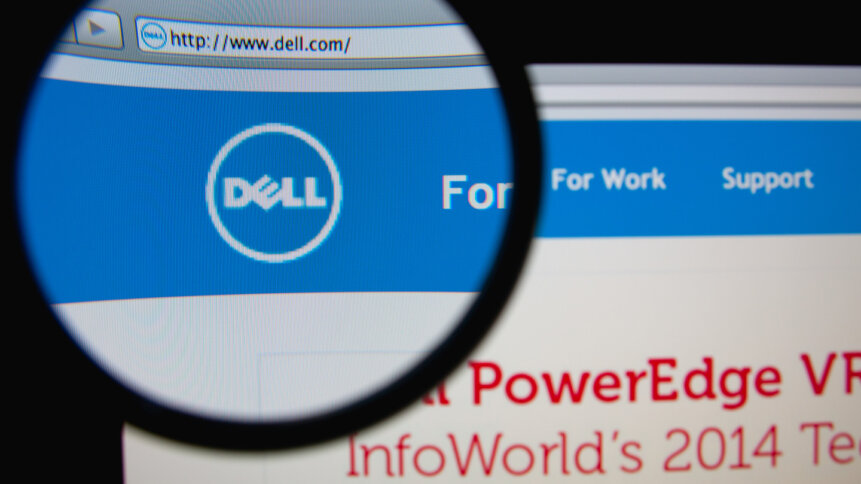Dell embraces layoffs – as a survival strategy

Computer manufacturer Dell has become the latest of the big-name tech companies to announce job layoffs as the harsh economic climate of 2023 bites down on the industry.
The story of tech industry layoffs is now so familiar it can frequently be sung without a hymn-sheet. Companies invested in additional staff during the pandemic years to meet an impressive boom economy (given the locked-down state of the world), as it became apparent to people that continuing to live and work during lockdown meant necessary investment in high-tech goods, particularly in new computers.
In the post-pandemic spending crunch, with inflation rising and more and more people – and companies -going into a siege mentality when it comes to tech spending, big tech companies can’t economically sustain their staffing levels, and so let the excess staff go.
Right?
Well, certainly that’s been the story in lots of cases when it comes to the 2023 layoffs that have become so much a feature of the news in just the first six weeks of the year.
A very different set of layoffs.
But Dell’s is a very different case.
For instance, it actually laid staff off in 2020, when the pandemic really got going – so for Dell, this is not simply a shedding of excess bodies that were picked up to deal with a boom.
It’s expecting to lay off around 6,650 workers, and its reasoning at least is familiar from recent news headlines – it says the layoffs are necessary because of the decline in demand for personal computers in that post-pandemic economic crunch.
Those 6,650 jobs, in line with some other leading tech firms that we’ve seen jettison livelihoods in January, amounts to around 5% of the company’s overall global workforce.
But if the job cuts at Dell are not, in line with other companies, the result of an investment during the pandemic that can no longer be sustained – what are they, and what do they mean?
A bleak honesty.
To an extent, if you read between the lines of a memo from Jeff Clarke, the company’s co-chief operating officer, there’s a bleak honesty about the company’s economic future visible here. Clarke wrote that “the company faces tough market conditions with an uncertain future, and its previous cost-cutting measures are no longer enough.”
That’s not slapping on a happy face and giving a rousing chorus of “The sun’ll come out tomorrow…” That’s acknowledging that everything Dell has done so far to stay ahead of what it calls “downturn impacts” has not been enough to avoid a 5% shrinkage of the company’s overall worldwide workforce.
Clarke, who should probably be applauded for honesty, even if Dell shareholders are grabbing their torches and pitchforks as we speak, also acknowledged that the company might even have to take “additional decisions to prepare for the road ahead.”
No tougher decision.
Dell’s global sales and services segments, he explained, would be seeing some changes, not to mention some shrinkage, as a result of the move.
“There is no tougher decision, but it is one we had to make for our long-term health and success,” he explained.
The decision may be tough, but there’s no escaping the fact that it was forced on Dell by some grim reading in the company’s third quarter 2023 fiscal year results in late November last year, which saw the company’s product sales across laptops, desktops and workstations drop by an unhealthy 10%, and its overall revenue across the board down 6%.
While Clarke, perhaps a little belatedly for his shareholders’ liking, put a brave face on the layoffs, saying the company had faced tough times before and “emerged stronger” at the end of them, and that “Dell will be ready when the market rebounds,” there’s no getting away from the sense that this feels like one of the most bleak layoff announcements so far.
Weathering the storm?
It feels that way because the by-now usual narrative of taking on staff to cope with a pandemic boom doesn’t especially apply to Dell. This is not the result of the rollercoaster of economic circumstances applying to most big companies in the technology sector. This is a big computer manufacturer which laid off staff while others were taking them on, admitting that everything it’s done to weather the storm so far has not been enough – and so another 6,000 families have to find themselves down a wage, even at a time when the same inflationary and economic pressures are affecting them too.
While Clarke is of course correct as far as he goes – Dell has weathered economic downturns before – this is Dell copping to the economic failure of its efforts to avoid layoffs up till now, and doubling down on measures to ride out what looks set to be an increasingly rough year for the technology manufacturing sector.
And while it would be ludicrous to start ringing a death-knell for Dell just yet, the tone of Clarke’s announcement makes it clear that there will probably have to be some shift in the company’s strategy if it’s to emerge from this downturn stronger than it was when it went in. In particular, Dell has always positioned itself as a premium product, despite often using the same chips as significantly cheaper competitors.
Whether that remains a winning strategy to get through the rest of 2023 remains to be seen.










